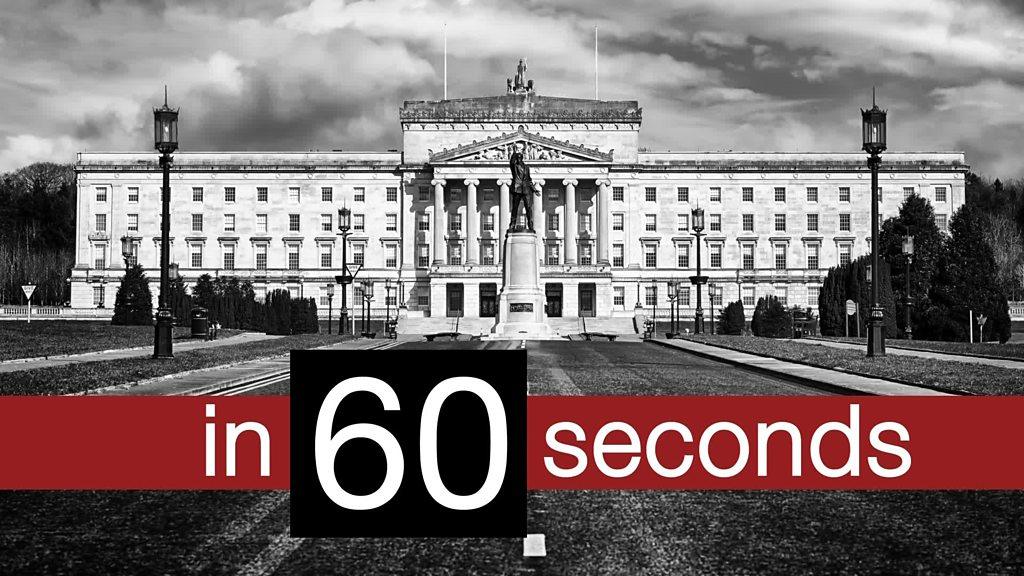RHI scandal: Payments suspended on half of inspected boilers
- Published

Simon Hamilton has written to political parties asking if they would support publishing the names of those who took up the RHI scheme
Inspectors responsible for regulating Northern Ireland's RHI scheme say they have suspended payments at more than half the boilers they have audited.
OFGEM said of the 63 installations they had looked at, subsidy payments had been suspended at 33, for a number of reasons, including technical issues.
Payment was recovered from four of them. Another five had their payments resumed after investigation.
In the rest of the cases investigations are continuing.
No participant has been permanently excluded from the scheme.
The Renewable Heat Incentive (RHI) scheme was an attempt by the Northern Ireland Executive to help to increase consumption of heat from renewable sources.
But flaws in setting the scheme's subsidy rate left it open to abuse as claimants could earn more cash the more fuel they burned, with the overspend estimated to be about £490m.
It has been centre stage in politics in Northern Ireland over the past month, with the resignation of Martin McGuinness as deputy first minister bringing the issue to a head.
Former first minister Arlene Foster set up the scheme in 2012 when she was enterprise minister.
A plan to mitigate the cost of the RHI scandal, produced by Economy Minister Simon Hamilton, is being brought before the assembly on Monday,
There were 2,128 applications accredited to the non-domestic RHI scheme in Northern Ireland up until its closure to new applicants last February.
OFGEM was heavily criticised when it gave evidence to the Northern Ireland Public Accounts Committee over the number of its site inspections.
Asked whether OFGEM could make available the kind of quarterly and annual information for Northern Ireland that it provides for the non-renewable scheme in Britain, a spokesman said: "The Department for the Economy retains reporting functions for the non-domestic RHI and requests for information should be directed there."
Information not disclosed
The Department for the Economy has declined to disclose information about participants of the botched scheme, despite telling boiler owners it would be "freely available" to the public.
Officials said that under the rules, it could provide detailed information about their installations.
The information did not include the names of claimants.
However, it did involve location, technology type, installation capacity, accreditation date and subsidy.
Those involved in the scheme were told that by signing up to it, they were consenting to the publication of the information.
The minister, Mr Hamilton, has written to political parties asking if they would support the publication of the names of those who took up the RHI scheme.

Simon Hamilton has written to political parties asking if they would support the publication of the names of those who took up the RHI scheme
In a letter to Ulster Unionist leader Mike Nesbitt, Mr Hamilton said he was "of the view" that recipients' details should be published in "order to be as open and transparent as possible about how public money is being spent".
He said a balance would need to be struck between the "significant public interest" and the departments' obligations to protect participants confidentiality and privacy under data protection legislation and the scheme's own privacy policy.
He asked for a response by Tuesday 10 January.
Mr Nesbitt said he was "surprised" to be asked the question given that the UUP had consistently said the names should be published.
The Department for the Economy is currently taking legal advice about whether it can publish a list of the participants.
Flawed scheme
The BBC asked the department for information about the scheme's participants on 17 December and, almost a month later, it declined to provide it.
If the information and a list of the participants were to be published, it would allow the identification of those who got into the scheme during the spike in applications in November 2015 - just before the subsidy level was dramatically reduced.
Almost 900 applications were received in the months leading up to the change, as officials moved to cut the subsidy level.
Former Department for Enterprise, Trade and Investment (DETI) minister Jonathan Bell, who was in charge of the department at the time, alleged that DUP special advisers had tried to delay the changes.
That has been denied by the former first minister Arlene Foster and by the advisers named.
Mr Bell, a member of the DUP, has been suspended by the party.
- Published7 November 2017

- Published19 December 2016

- Published23 October 2019
